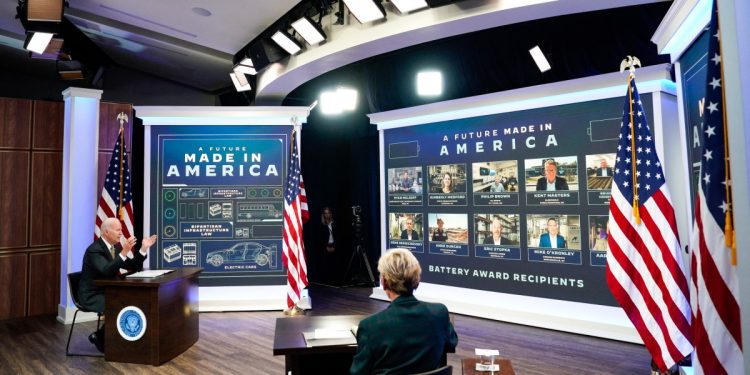The US is on a climate tech spending spree. Over the past year, federal action has set aside hundreds of billions of dollars for energy and climate. Now, we’re starting to see some of that money actually get handed out.
The Department of Energy announced about $2.8 billion in grants to companies working to make battery materials and components in the US last week, joining what seems like an endless stream of announcements from companies building EV and battery manufacturing in the US over the past several months.
But while this is an exciting first step to getting more batteries built in the US, these planned facilities are in a deceptively small part of the battery supply chain—and risk stealing focus from other crucial, early stages of the supply chain too. Read the full story.
—Casey Crownhart
Casey’s story is from The Spark, her new weekly newsletter covering all things energy and climate. Sign up to receive it in your inbox every Wednesday.
Delve back into some of Casey’s most recent issues:
- Why scientists want to help plants capture more carbon dioxide. Casey sat down with Pamela Ronald, a plant geneticist at the University of California, to hear more about her new plan to use advanced genetics for carbon removal on farmland. Read the full story.
- How hydrogen and electricity can clean up heavy industry. “Hard-to-Solve Sectors” is a term that’s increasingly bandied around when it comes to technologies designed to tackle the climate crisis. But what does the term mean, exactly? Read the full story.
- Inside a battery recycling facility. Casey took a trip to Reno, Nevada, to visit a massive new battery recycling facility from Redwood Materials before it opens its doors. Read the full story.
The must-reads
I’ve combed the internet to find you today’s most fun/important/scary/fascinating stories about technology.
1 Elon Musk is edging closer towards buying Twitter
If the deal closes on Friday, he’ll become more powerful than ever. (NYT $)
+ In his idiosyncratic fashion, Musk arrived at Twitter HQ with a sink. (WP $)
+ He appears to have changed his mind about cutting jobs. (Bloomberg $)
+ Here’s how the deal has unfolded over the past 10 months. (Insider $)
2 Meta is a mess right now
Facebook’s not looking healthy, and it’s still waiting for the metaverse to catch on. (NY Mag $)
+ Mark Zuckerberg’s metaverse gamble will keep losing money. (Bloomberg $)
+ He doesn’t seem to mind that too much, however. (Insider $)
+ Meta’s market value has plunged by more than $65 billion. (The Guardian)
3 Our appetite for fossil fuels is predicted to peak by 2035
The war in Ukraine has accelerated the switch to cleaner energy. (New Scientist $)
+ The US agency in charge of developing fossil fuels has a radical new job. (MIT Technology Review)
4 Recycling EV batteries is undoubtedly challenging
Dedicated gigafactories could be our best bet. (Economist $)
5 China’s entrepreneurs are facing tough choices
They can stay in an increasingly hostile China, or risk it overseas. (WSJ $)
+ A pro-China group is clumsily trying to spread US election disinfo. (Wired $)
+ How the false rumor of a Chinese coup went viral. (MIT Technology Review)
6 Puerto Rico’s power grid never fully recovered from Hurricane Maria
Residents are still plagued by power outages five years later. (The Verge)
+ How Google alerted people to an earthquake before it happened. (Wired $)
+ Predicting—and preparing for—the worst. (MIT Technology Review)
7 A mysterious particle appeared following a space explosion
Experts hope it could prove the existence of dark matter. (Quanta Magazine)
Source by www.technologyreview.com





















